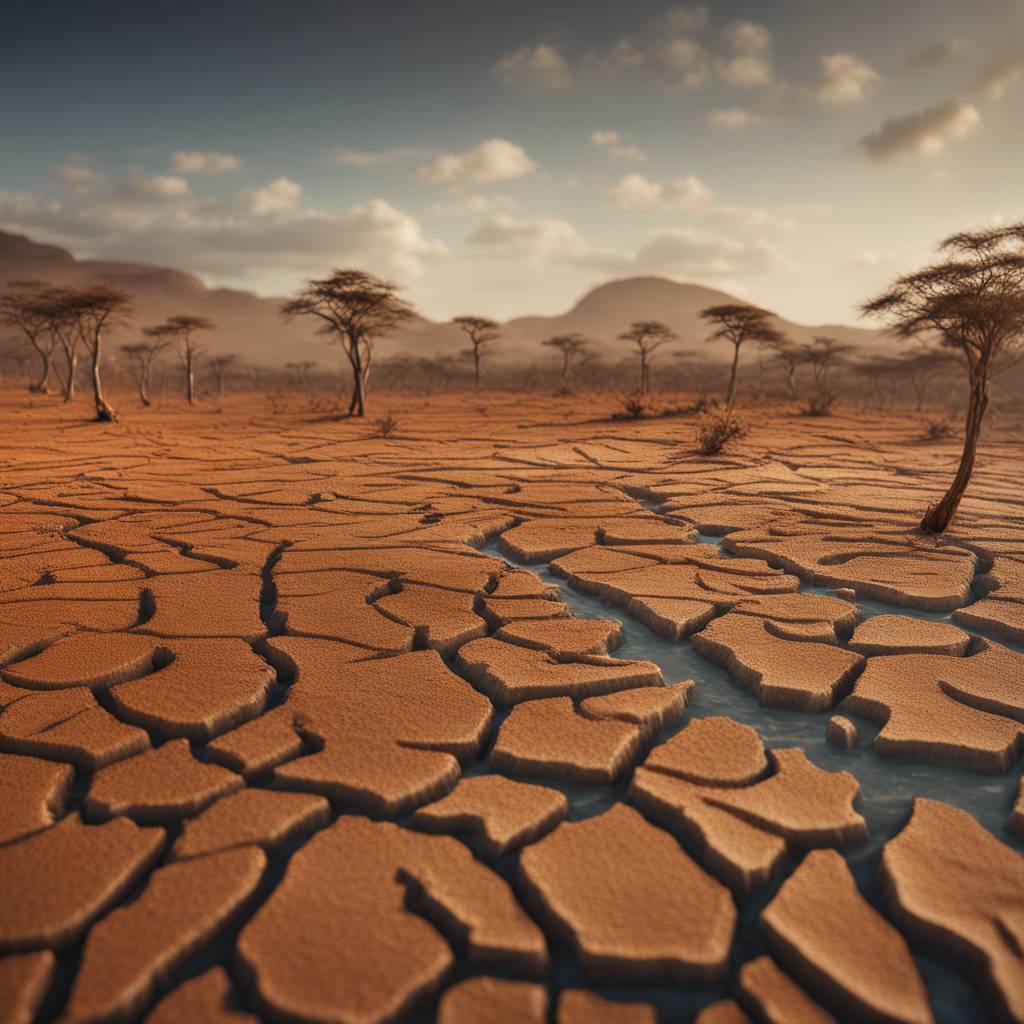A recent study led by a team from the University of California, Irvine, has established a clear connection between human-induced climate change and the prolonged drought currently affecting southern Madagascar. Through the use of remote sensing observations and climate models, the researchers were able to track changes in water availability in the region, particularly noting a delayed onset and shortened duration of the rainy seasons. The team analyzed satellite data on vegetation greenness and compared it to climate models, ultimately finding a narrowing window of the rainy season, which serves as a hallmark of climate change-induced shifts in seasonality.
The multi-year satellite record, dating back to the early 1980s, played a crucial role in the study, providing valuable insights into changes in water availability in southern Madagascar. This long-term observational data is especially significant for regions like southern Madagascar, which lack detailed historical climate records. The researchers were able to draw a clear connection between the observed changes and climate models, highlighting the impact of climate change on the region’s hydrological cycle. Christopher Golden, an associate professor at Harvard University’s T.H. Chan School of Public Health and a co-author of the study, emphasized that the region has been experiencing changes in rainfall patterns over the past few decades, with the current drought exacerbating existing challenges in the arid landscape.
Collaboration with key stakeholders such as Catholic Relief Services and the USAID Mission to Madagascar provided essential insights into the on-the-ground impacts of the drought on local populations. As the United Nations declared a state of famine in southern Madagascar due to climate change in 2021, the researchers were motivated to investigate the situation using satellite data. By identifying climate change as the primary driver of the ongoing drought, the study aims to empower policymakers with evidence-based recommendations for targeted relief efforts. Christopher Golden highlighted the recurrent nature of such climate-induced disasters, emphasizing the importance of long-term planning and financing for relief efforts in the region.
Acknowledging the predictive nature of climate change, the researchers stress the importance of proactive adaptation strategies for vulnerable populations in southern Madagascar. By understanding that events like droughts are likely to become more frequent in the future, communities and policymakers can develop resilience and mitigation plans. Angela Rigden, the lead author of the study, emphasized the need for continuous monitoring and adaptation efforts to address the evolving climate challenges in the region. The findings of this study are expected to inform future decision-making processes and resource allocation for relief aid programs in southern Madagascar.
The study was made possible through funding from Catholic Relief Services (Madagascar) in partnership with USAID, highlighting the critical role of collaboration and support from humanitarian organizations in addressing climate-related crises. As the impacts of climate change continue to unfold in vulnerable regions like southern Madagascar, the research serves as a foundation for evidence-based policy interventions and adaptive strategies. By combining remote sensing data, climate models, and on-the-ground observations, the researchers have elucidated the complex relationship between climate change and drought in southern Madagascar, underscoring the urgency of targeted interventions to build resilience and mitigate future risks.






